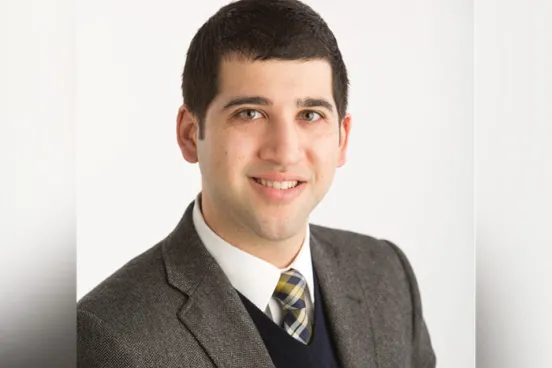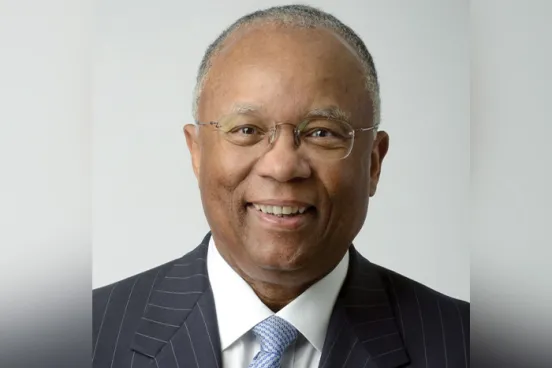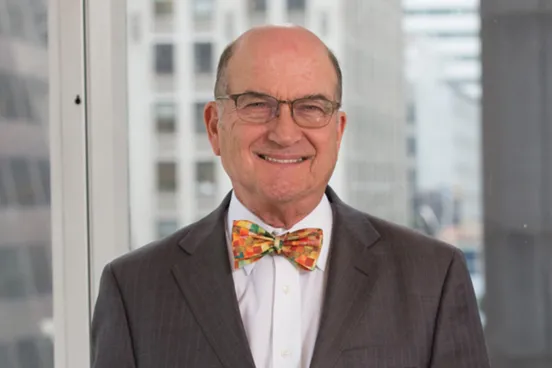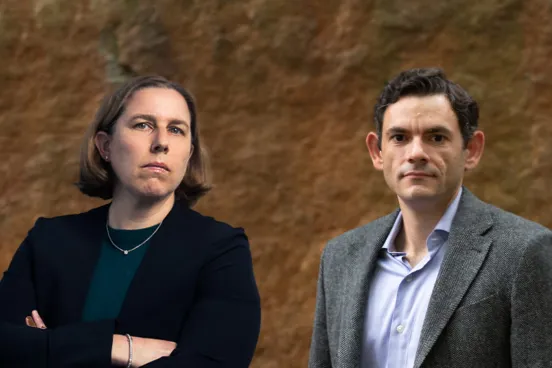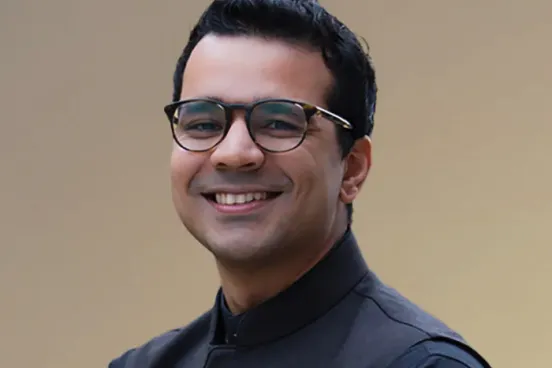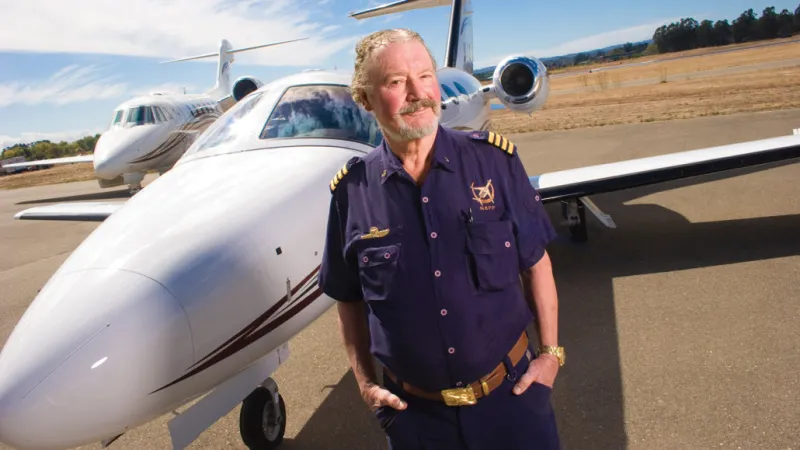
Fred Furth, ’59, says the key to his success is simple: confidence.
It helped him talk his way into the University of Michigan, and win a 1973 antitrust case that established his reputation as a formidable antitrust litigator. It also helped ensure that the only California chardonnay served at Queen Elizabeth’s celebration of the 50th anniversary of VE Day was from his own Chalk Hill Winery.
“Doubt doesn’t occur in my life,” Furth says. “I fear nothing. I know that whatever the problem, I’m either going to go around it, under it, over it, or right through it.”
The source of that confidence is Furth’s mother. “She taught me that I’m okay just as I am, so I don’t need any reference point to make decisions. I am the most confident person you will ever meet.”
The case that made Furth’s career came just eight years after he graduated from Michigan Law, when he represented a group of contractors and suppliers who said they had overpaid for gypsum wallboard because of a price-fixing scheme among leading manufacturers of the product. Furth took the case on contingency, putting in seven years and an estimated 6,000 hours to ensure success. He landed $4.3 million in fees from the $70.5 million settlement, although as a 1977 New York Times profile noted, “Mr. Furth, not known for his shyness, had asked for $6.7 million.”
Furth has been involved with other high-profile cases.
In 2005, he sued Wal-Mart on behalf of hourly employees who claimed the company denied them lunch breaks. The result was a $172 million judgment. Earlier, he represented exiled former Philippines President Ferdinand Marcos; spent nearly a month trying to serve a subpoena on Howard Hughes during antitrust lawsuits involving Trans World Airlines; and brought a discrimination suit against Pacific Telephone and Telegraph on behalf of its gay employees.
His former colleague and mentor Joseph L. Alioto, who later became mayor of San Francisco, once called him “the second best young antitrust attorney in the country—second best to me, that is.” Former Michigan Law Professor S. Chesterfield Oppenheim—whom Furth credits with helping him get his start by securing him a summer internship in the Department of Justice’s antitrust division honors program—told The New York Times, “[Fred] had already informed me while he was still in school that he would be one of the top antitrust attorneys in the country. He is one of the few people who can point to an accomplishment like that.”
In the early 1970s, Furth became a vintner, purchasing Chalk Hill Winery in California’s Sonoma Valley after his doctor said that his yachting lifestyle was harming his waistline. Furth—who also is a pilot and once flew his own Silver Sabreliner 40 to the Paris Air Show—noticed the unspoiled beauty of the valley by air.
By day’s end, he had met with a realtor about purchasing Chalk Hill. On the advice of an expert from the University of California, Davis, Furth planted grapes up the hillside—a technique not then used in the region, but one Furth recalled from trips to Europe.
When Furth sold the winery in 2010, the 278-acre vineyard produced about 45,000 bottles annually of acclaimed red and white wines—including the chardonnay sipped in Buckingham Palace after Furth insisted to palace officials that they use a blind taste test to select just one winner.
“I never made the wine; I stayed out of the winemakers’ way,” says Furth. “But I knew enough to know that our wine was second to none.”
While Furth’s mother instilled the confidence to be successful, he credits U-M with providing the education both in and out of the classroom to launch his career. He later established the Frederick Paul Furth Sr. Professorship at the Law School as a show of gratitude. “Michigan was a finishing school for me,” says Furth, a son of immigrants who comes from self-described humble beginnings. “I wasn’t very mature when I arrived in Ann Arbor. But I was open to learning, and it was a fantastic environment.”
Furth grew up in rural Illinois and worked a series of odd jobs to help make ends meet, which he says helps him relate to juries. He struggled with dyslexia and remembers that in fifth grade, the teacher seated her 30 students in order of intelligence.
“I was seat 29,” he says. His high school guidance counselor said he didn’t have the grades to go to college, and suggested he marry a classmate and work at the local service station. Furth replied that he was going to law school. He set his sights on Michigan, and when he didn’t get in, he called the admissions office every month, asking what he needed to do. “Finally they told me I needed Bs in my current classes, so I went and earned four Bs.”
At Michigan Law, Furth worked in the dining hall, and borrowed textbooks from the Law Library to save money. He also had a healthy dose of confidence at exactly the right time. As a 1L in Professor Allan Smith’s Property class, Furth sat in the back, “wanting to get as low as I possibly could.” Smith called on a student in the front, who tried to pass on the question, at which point Furth says that Smith excused the student from the class.
The same thing happened with a second student, and Furth recalls an exasperated Smith asking if anyone was prepared to discuss the case.
“God took my arm and raised it,” says Furth, who explained that the case centered on the rule of perpetuity. “They used to call me the hook-plus man because I was always the guy who got a C+. But I got Bs from Professor Smith. I studied as much property law as I could, so I wouldn’t let him down.”
After graduation, he worked on Wall Street at Cahill Gordon Reindel & Ohl for four years, and then spent a year at the Kellogg Co. in Battle Creek, Michigan, before moving to San Francisco. Soon after, he opened his own firm. He moved the practice to southern Florida a few years ago and continues to practice.
“I’m still at the top of my game because I love what I do,” Furth says. “The law is one of the greatest games of all time, and I have never worked a day while I’ve been in practice. That’s how much I love it.” But the real love of his life, he notes, is his family.


